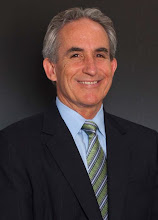November 2005
A Relationship Story
The Freakonomics of The Conventional Wisdom
The Freakonomics of The Conventional Wisdom
Things are not always what they seem, and it takes a clear view of reality (and the data to support it) to get our perceptions out of our way. Here’s an example. I think we all share a perception that drug dealers are all driving cool cars and rolling in dough…so why do nearly all of them still live with their Mothers? In Freakonomics - a book by a self-admitted "rogue economist" about how prevailing incentives make things what they really are – the real world of the drug dealer is described based on exhaustive research. The stark reality is that it’s a classic pyramid, where for every one person with a cool car, there is a giant pyramid of foot soldiers who are effectively enslaved at far below poverty wage. The author contends that based on their own perceptions, getting to be the boss is the only "success" they can hope for, and there is nothing that protects them from being exploited.
While this book addresses some very controversial issues - and I’m not endorsing all the assertions it contains - I am endorsing the idea that we need to look beyond the perceived "obvious" to seek the truth. I think our world encourages us to believe in conventional wisdom, and also that somebody’s incentives are being realized by getting us to believe. It’s sort of a Question Authority thing for me, and it bugs me.
A perfect conventional wisdom example is something I come across all the time…what is most important for people in getting the best reception from potential employers (I also believe this is true for all relationships). The conventional wisdom tells people they need to morph into what the market is looking for. I don’t buy that. If they try to morph, they’re going to be half-baked, and they won’t fool anybody. This isn’t science fiction, it’s people, and people just don’t "transform" themselves very well. Face it, people are what they are, and they’re always more effective just being themselves and leveraging their natural strengths. What I tell people is that they need to find ways to get people excited about what they really are - and then let the network give them leverage - instead of trying extra hard to be a square peg for a round hole.
Another conventional wisdom old standby is that you can’t trust others or you’ll get screwed. I hate that one, although I’m no fool and I know some people have gone to the dark side…I just prefer to try to keep them out of my life.
So ok, let’s try and experiment. Let’s assess the conventional wisdom within our own little community as it relates to honesty. Just press reply and send me your quick answer to this very simple question:
On a 0% - 100% scale, from dishonest (0%) to honest (100%), what is the average % for successful people? Don’t think too hard, just press reply with one number between 0% and 100%. I’ll compile the data (confidentiality is assured) and share it with you all in an upcoming story.
Book Recommendation: Freakonomics by Stephen Levitt and Stephen Dubner
Sincerely,
Jeff Black
Principal Consultant
McDermott & Bull Executive Search
black@mbsearch.net

No comments:
Post a Comment